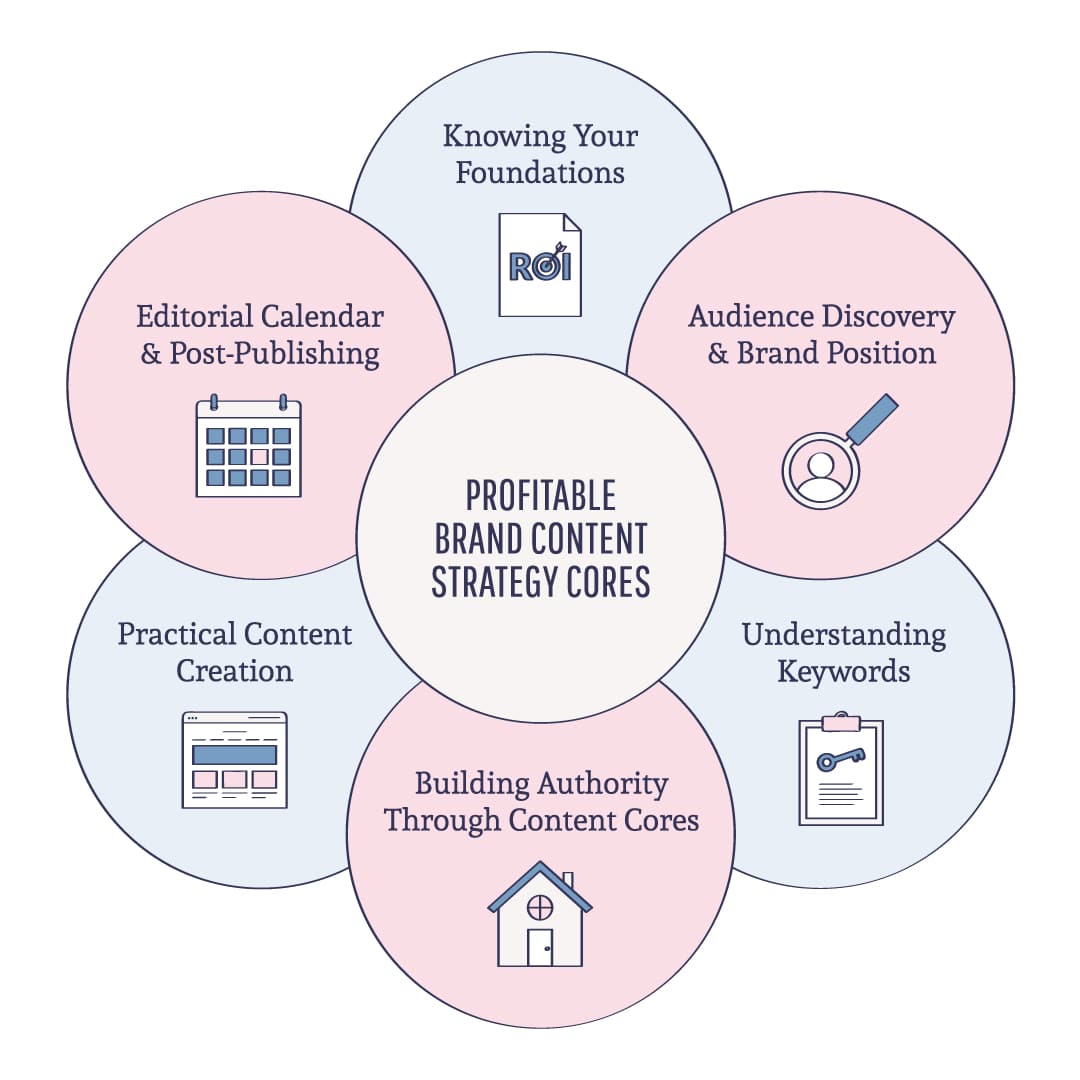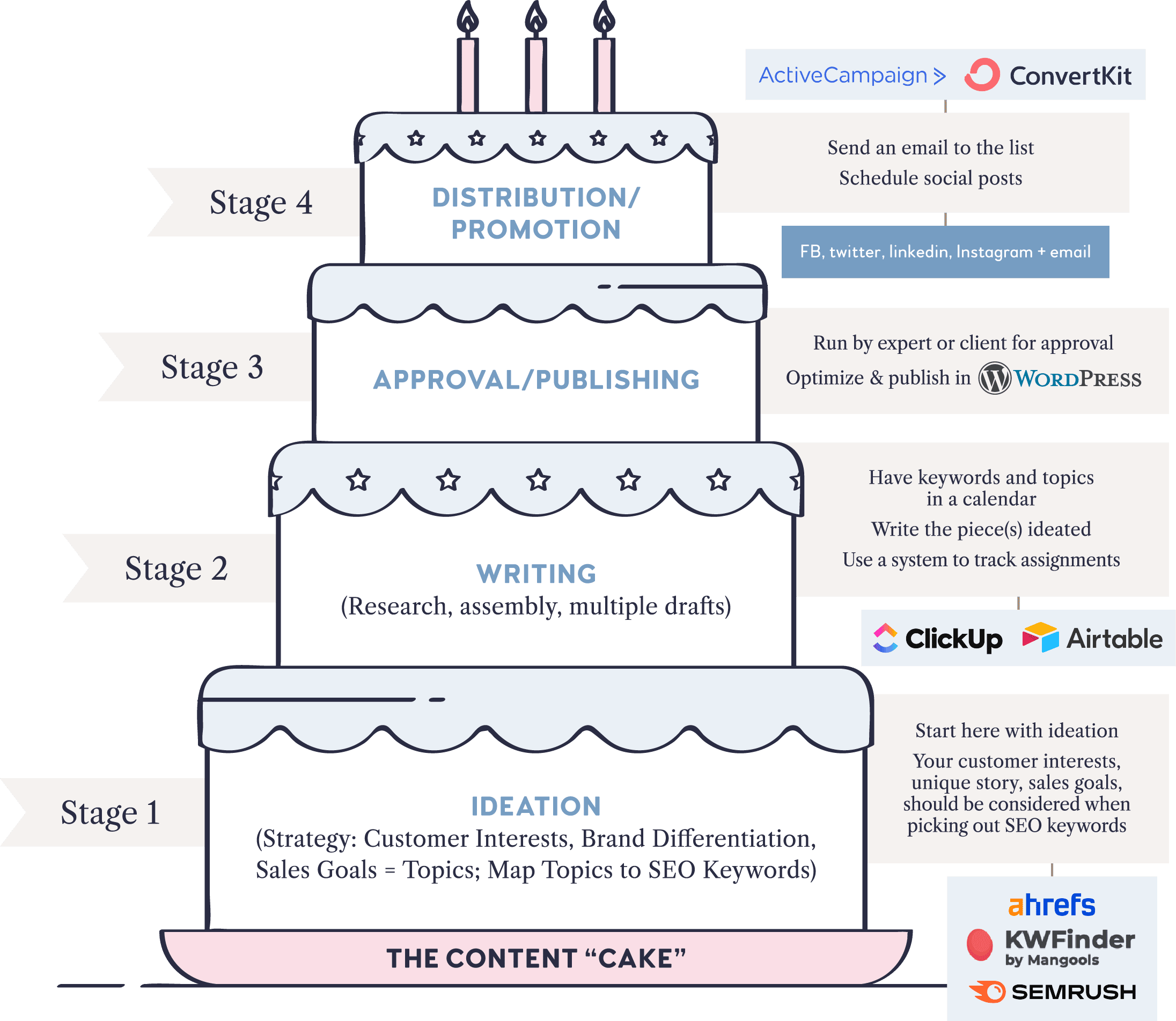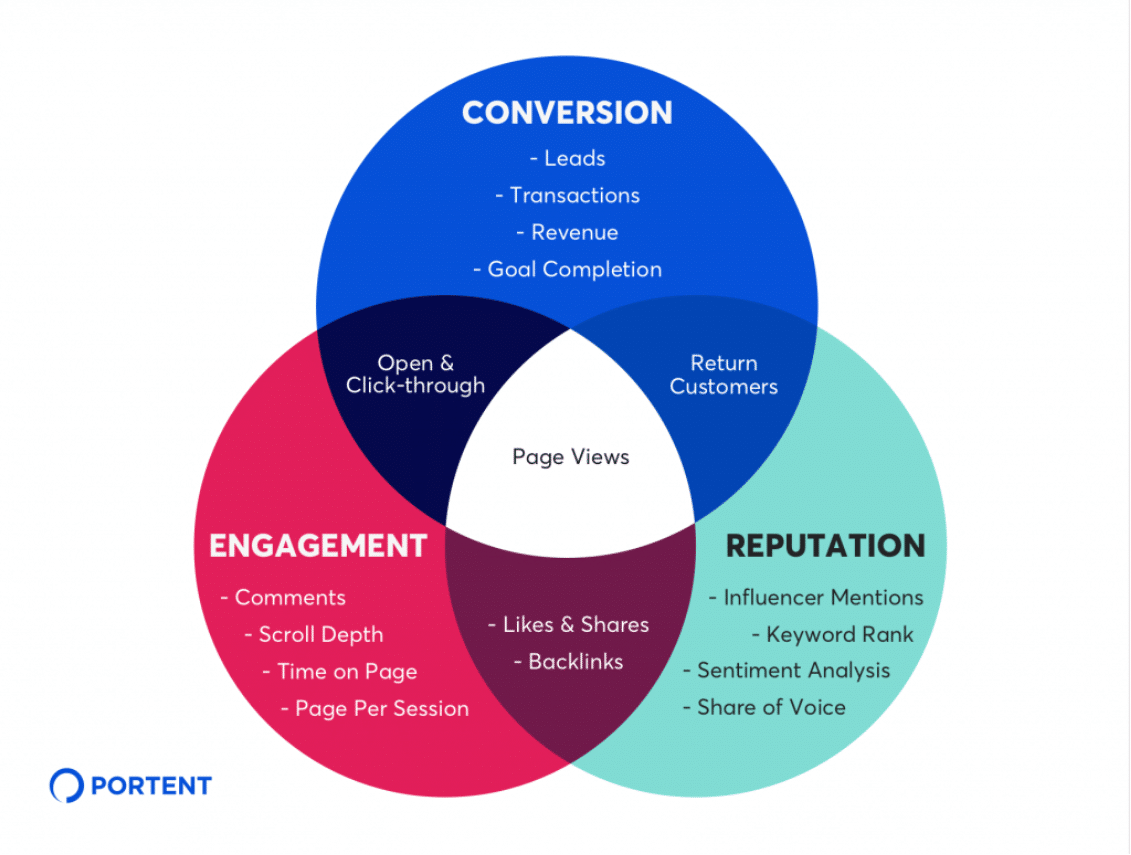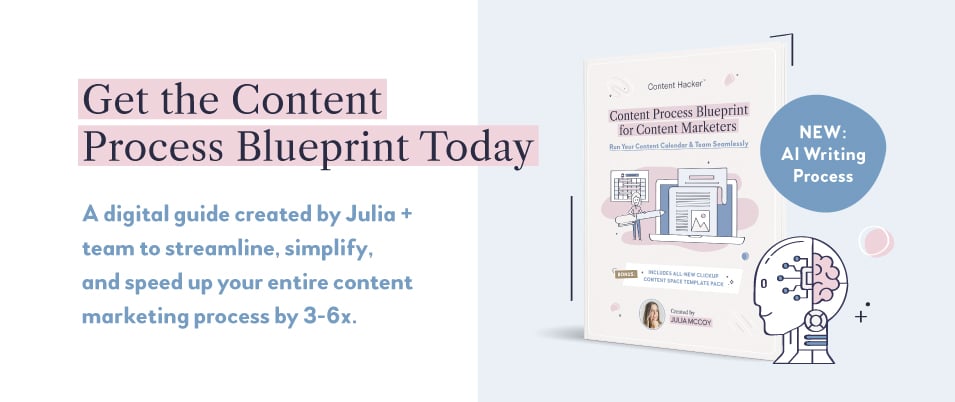Content strategy services are more in demand than ever before.
That’s because smart content strategy leads to incredible content marketing.
And incredible content marketing leads to mega-growth like:
Businesses of all kinds, from all industries, need effective content marketing — and content marketing strategy services help them deliver that for their audiences.
The question is, how do you set up those services and sell your expertise in content?
In this blog post, we’ll:
- Break down how content strategy services work.
- Show you how to set up your own solutions using the latest technologies.
- Explore leveraging AI for faster results.
Content Strategy Services Guide: Table of Contents
What Are Content Strategy Services?
Content strategy services involve the planning and implementation of a company’s content marketing efforts across multiple channels such as websites, blogs, social media accounts, and other digital platforms.
These services are all about creating an effective content marketing plan that outlines these elements:
- Content marketing goals and how you’ll achieve them.
- Who the target audience is and what their content needs are.
- Topic and keyword research strategy for SEO.
- Content creation workflows.
- The content calendar and publishing strategy.
- Promotion techniques to focus on.
- Goal measurement and progress tracking.

In the end, the goal is to engage users through relevant topics, nurture them with valuable content, and ultimately pull them further into the sales cycle.
What Are the Benefits of Offering Content Strategy Services?
Content strategy services offer tons of advantages for businesses looking to expand their online presence.
By creating quality content that is tailored toward specific audiences, with topics related to the business’s industry or niche market, companies can foster trust with potential customers while establishing themselves as experts in their field.
This leads to results like:
- Increased online visibility which leads to higher brand recognition.
- Enhanced customer engagement through carefully crafted messaging.
- Improved SEO rankings thanks to high-quality content optimized with keywords.
- Greater consumer loyalty due to consistent delivery of quality content.
- Cost savings (content marketing costs 62% less than traditional advertising).
Examples of Content Strategy Services
Digital content strategy services involve developing a comprehensive plan for creating and managing content on websites or other digital platforms.
When you offer these services to brands, you may:
- Define goals such as increasing website traffic or improving customer engagement with the brand.
- Select appropriate topics, formats, channels, and metrics to track success.
- Plan out how often to create new content to keep users engaged over time.
- Offer diverse services that complement a content strategy like website design, copywriting, search engine optimization (SEO), social media management, email campaign creation, video production, and more.
Your services also may differ based on what type of brand you’re working with and what they need. For example:
- Some businesses need a full-service strategy, from start to finish, as well as implementation.
- Some might need you to teach their team how to create and execute a content strategy.
- Some need help figuring out where to start.
- Some may already have a semblance of a strategy, but it might not be working so they need you to figure out why and fix it.
Content strategy services are a powerful way to create and manage engaging content that can drive business growth. By setting up content strategies for businesses, you’ll unlock the potential of effective long-form content marketing for people who don’t have the time or the skill to execute it.
How to Set Up Your Own Content Strategy Services
Setting up your own content marketing services can be a daunting task. But, with the right plan and tools in place, you can create an effective system that will help your clients reach their goals.
The key word here is “system” — a content strategy is a system made up of separate parts that you’ll need to build individually so they all work together. And, building these parts is going to look vastly different depending on the brand.
Lastly, remember that you may create one, a few, or all of these pieces for businesses when you sell content strategy services. That’s why it’s essential to understand not only how to build a content strategy, but also how it all fits together.
Let’s break it down.
1. Create Roadmaps for Identifying Target Audiences and Goals
The first step to setting up a content strategy is identifying who the target audience is and what goals the brand wants to achieve.
- Consider who would benefit from the content and how it will help them.
- Research this potential audience using methods like surveys, social listening, 1:1 interviews, and data collecting.
- Record what you find out about the audience using a tool like a business persona.
Finally, every business has unique goals about how they want to grow. You’ll need to work with brands to understand their goals and create measurable content objectives so that you can track progress toward them over time.
2. Develop a Flexible, Customizable Content Plan
Once you know who the target audience is and what goals the brand wants to achieve, it’s time to develop a comprehensive content plan.
This should include:
- Topic research and ideation. Research and choose the broad topics the brand should focus on as well as individual blog post topics.
- Keyword research and optimization. Research keywords for SEO and map keywords to topics (or vice versa).
- Content creation. Decide who will write, record, edit, and proofread content, as well as what tools each role will use (like AI writing tools, grammar and spelling checkers, optimization tools, video/audio editing software, etc.).
- Scheduling and publication. Create a content calendar. Determine how often you’ll need to create new content to keep it fresh and consistent.
Want the complete playbook to a consistent, comprehensive content plan, including workflows and tools? Learn how to create a streamlined content process, from ideation to promotion, with my Content Process Blueprint.
3. Implement the Right Tools and Technology
You’ll need access to reliable tools and technology for any content strategy service setup process to run smoothly.
Look into various software solutions that offer features such as analytics tracking capabilities or automated publishing options so that all of the necessary tasks are taken care of quickly without sacrificing quality control.
You can implement smart tools at nearly every stage — and having a good grasp of the tools available out there will help you give great recommendations to clients AND a competitive edge. ⚡
Here are a few examples of stages tied to tools.
Topic research and ideation tools:
- BuzzSumo
- Semrush
Keyword research and optimization tools:
- Semrush
- Ahrefs
- Mangools KWFinder
- Yoast SEO
Content creation tools:
- Content at Scale
- Google Docs
- Grammarly
- Canva
- ClickUp
- Airtable
And here’s a visual of stages tied to tools and tasks:

Pssst… my Content Process Blueprint breaks this all down for you. Get it here.
By taking the time to implement the right tools and technology for your content strategy services, you can set yourself AND your clients up for success.
4. Measure & Report the Success of Your Content Strategy Services
Last but not least, as a content strategist, you’ll need the ability to measure, track, and report the results of the strategies you put in place.
For example, establishing key performance indicators (KPIs) is a great way to track the success of any content marketing initiative.
KPIs are just quantifiable metrics that give you a good idea of whether a business’ content is performing or not. When these metrics look positive, they indicate overall growth for a brand.

Examples of KPIs and their associated metrics. Source: Portent
KPIs can include metrics such as website visits, conversions, or social media engagement. Analyzing the performance of each article or blog post will give you insight into what’s working and what isn’t so that you can adjust your strategies accordingly.
For instance, search engine rankings are a KPI that indicates a brand has grown in reputation and authority. This metric is easy to track in an SEO tool like Semrush, where you can look at the rankings a website has earned and their change in position over time.
![]()
And, as you track metrics, here are a few considerations to keep in mind:
- Page sessions, views, clicks. You should look at how long people stay on each page and whether they click through to other pages of the site after reading an article or blog post. This will tell you if readers find value in what they’re reading and if they want more information about a particular topic.
- Shares. Additionally, tracking how many shares each piece gets across different social media platforms can provide valuable insights into which topics resonate with audiences most strongly and which ones don’t perform as well.
- Competition. Finally, it’s important to keep an eye on competitors’ content strategies too. This will give you ideas for new topics to cover or ways to improve existing pieces of content based on their successes or failures in certain areas.
By regularly monitoring these metrics over time, businesses can identify trends in their own content marketing efforts as well as those of their competitors. This allows them to make informed decisions about where best to focus their resources when creating new pieces of content for maximum impact.
How to Leverage AI in Your Content Strategy and Marketing Services
To maximize the online presence of your content strategy clients, you might want to leverage AI.
AI can help automate the content creation process to save time, not to mention help smaller businesses with fewer resources scale more quickly.
Here’s how you can leverage AI-based solutions for your own content strategy services.
How to Use AI to Write Long-Form Content Faster for Maximum Impact at Scale
Artificial intelligence (AI) has been used in various industries such as healthcare, finance, retail, etc., but it is now being applied to the world of digital marketing.
By leveraging an automated tool powered by artificial intelligence (AI), businesses can quickly create high-quality, long-form articles or blog posts without having to research each topic from scratch manually.
One such tool? Content at Scale.
This tool uses three natural language processing algorithms that allow it to understand the context of a given topic so it can generate accurate results. It also uses a proprietary technology that scans the top of Google at the moment of creation — and then incorporates that information into the draft.
All you have to do is give it a keyword and some context. It will use this information to create a first draft in less than 15 minutes.

This automation makes it easier for businesses of all sizes — even tiny ones or a solopreneur — to scale up their content production efforts without sacrificing quality or accuracy.
By leveraging AI-based content strategies and marketing services, you can automate the content creation process and optimize your clients’ results with greater efficiency.
Successfully Create and Sell Content Strategy Services
Content marketing has a lot of power to grow a business…
…and more businesses than ever are finally wising up to that fact.
That’s great news for you if you’re a content strategist (or if you want to become one). You have the expertise and skills to build, execute, and track content strategies. 🧠
And if you don’t have the skills yet, it’s time to go out and get them.
Content marketing & strategy is a blooming field with plenty of room for more experts. If this line of work sounds appealing, if you want to sell content strategy services and help impact business growth, let’s get started.
In the Content Transformation System, my 12-month mentorship program, I teach marketers, entrepreneurs, and business-builders how to build, grow, and scale a brand with a foundation in content strategy.
Start on the right foot with community, coaching, a video curriculum, and monthly live calls. ✨
Apply today to start building your content strategy business.









